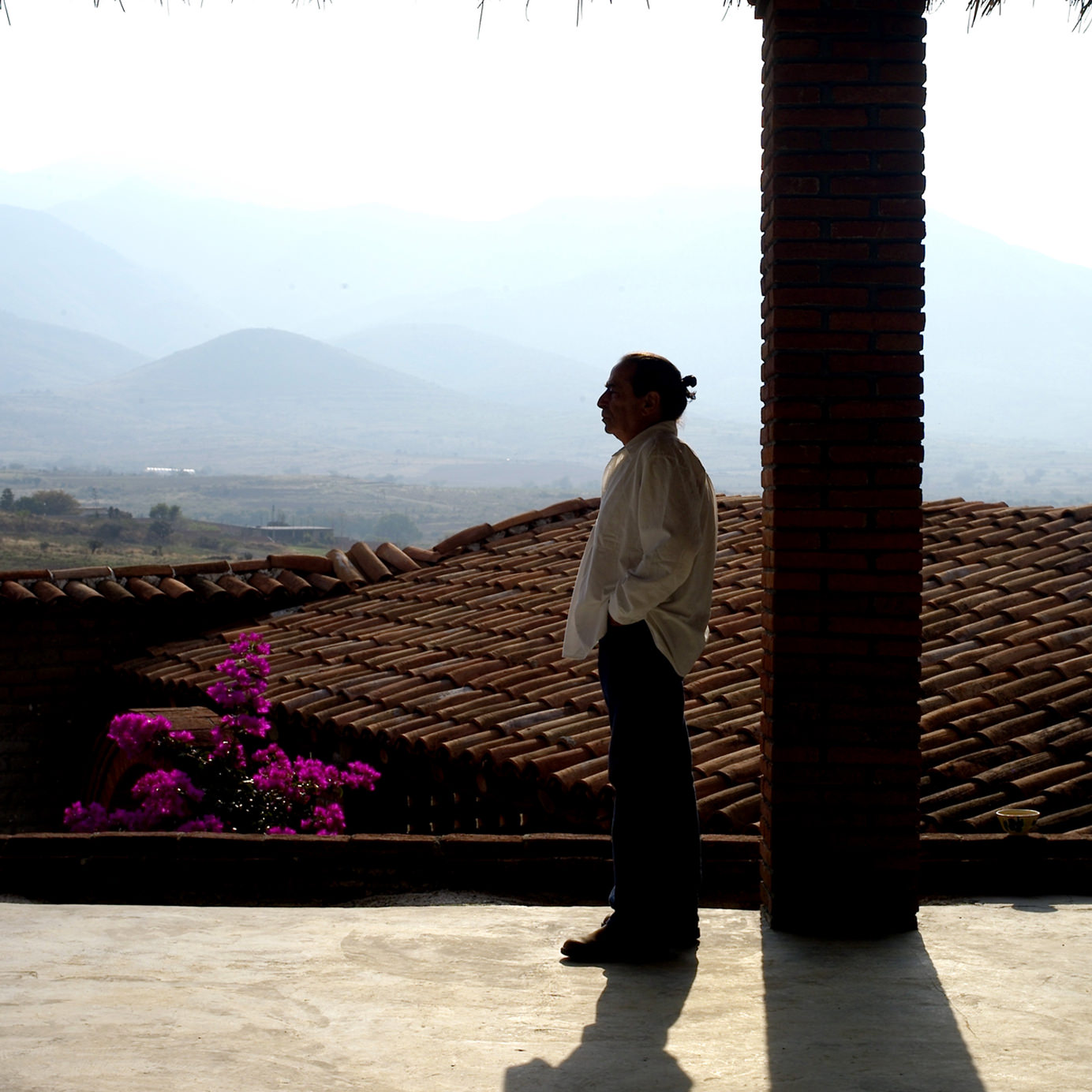Danny Mena was at a mezcal conference in 2008 the first time he heard murmurings that the United States was in a mezcal boom. As the co-founder of Mezcales de Leyenda, an artisanal mezcal company, Mena knew the ins and outs of the smoky, small-batch agave spirit, but he was skeptical of a mezcal “boom.” Back in 2008, the general public’s perception of mezcal was that it was a cheap, high-alcohol, sometimes hallucinogenic liquor from Mexico with a worm in the bottle. It was hard to find a good, kitsch-free bottle of mezcal in the U.S. 10 years ago if you weren’t on the coasts or in the Southwest near the Mexican border.
Now, Mena is again hearing talks about a mezcal boom. But this time, he’s less skeptical. Today, the world’s largest international spirits brands are investing in what was once a liquor market dedicated to small producers and word-of-mouth sales. Diageo, the largest global spirits company and a VinePair investor, manages distribution for Mezcal Union. Bacardi, the largest privately owned global spirits company, has invested in both Ilegal Mezcal and Zignum. Most recently, on June 7, Pernod Ricard, the second-largest spirits company in the world, announced the biggest investment in a mezcal brand by a multinational corporation yet: a majority stake in Del Maguey Single Village Mezcal.
Pernod Ricard’s search for a mezcal brand had been going on for a few years, Jeff Agdern, the senior vice president of Pernod Ricard New Brand Ventures, tells VinePair over the phone. And with good reason, too: From 2005 to 2015, the volume of mezcal sold in the U.S. grew by 279 percent, according to International Wine and Spirits Research. It’s still a minuscule number compared to a spirit like tequila (2.4 million liters of mezcal were sold in 2015 compared to 228.5 million liters of tequila), but the trend is clear.
Thanks to these new developments, mezcal producers are working on a business level they’ve never worked at before. Historically, mezcal has been hand made from agave by families of Mexican farmers and distillers, called palenques. It’s roasted in underground pits and wild-fermented in the open air. This distinguishes it from tequila, which is highly regulated and produced in a controlled environment. Mezcal, by comparison, holds a unique position in Mexican culture. Nearly all of the species of agave are native to Mexico, and indigenous civilizations dating back to the Aztecs have connected agave to the gods and spiritual medicine.
The spirit has also historically been fiercely independent — partly because of the labor it takes to make, partly because of its localized production, and partly because of its relative obscurity in the U.S. But that last part is about to change. It’s impossible to know the final impact multinational corporate interest will have on mezcal. What happened to Mexico’s better known spirit, tequila, is one possible outcome, though.
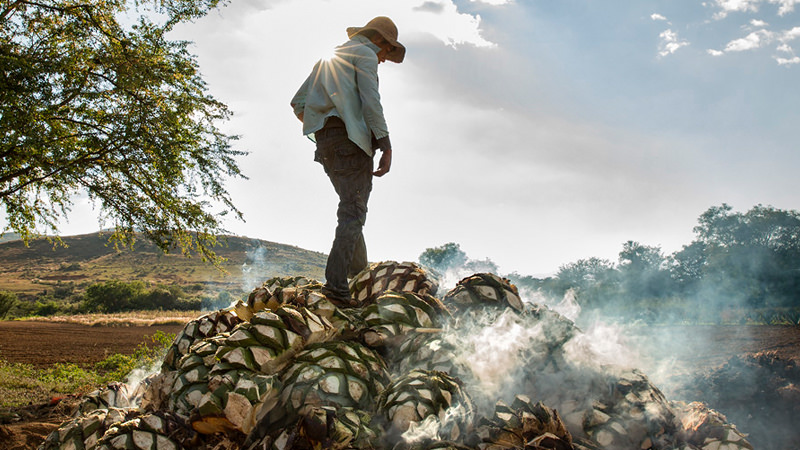
*
Tequila, the most popular agave spirit, is the best known style of mezcal. But tequila and its familiar flavor profile differ from the mezcal Mena and other brands are working with. Tequila is made in the state of Jalisco and a few other principalities from a single variety of agave, blue agave. Often, it’s produced in highly industrialized environments. Mezcal, in comparison, can be made from dozens of different types of agave in nine different states.
Tequila is also the fastest- growing spirit in the U.S., according to data from the IWSR, a U.S. beverage alcohol review publication. The U.S. consumes the most tequila in the world — even more than Mexico — and in 2016, a record 16 million cases of tequila were sold.
Much of that growth is due to multinational corporations and their massive distribution, sales, and marketing channels, Mike Morales, the CEO of Tequila Aficionado Media, tells VinePair in an email. Tequila was influenced by monied interests even before multinationals came in, though.
The very first commercial tequila brand, Jose Cuervo, was started in 1758 when the country was under Spanish rule. Other clans of wealthy landowners followed suit, and established family brands with large farms and production facilities that pushed out a regulated and consistent product. Then, in the late 1800s after Mexico gained independence, the Sauza family exported tequila for the first time. In the U.S., it was known simply as vino mezcal. Tequila was given an official designation of origin that regulated production in 1974, and the export market started to pick up after classification.
For decades after the designation of origin, cheap Jose Cuervo Especial and 1800 “mixto” brands were made with a minimum of 51 percent agave and up to 49 percent other distilled liquors. The cheap liquid proliferated in clubs and filled restaurant Margaritas. Good sipping tequila made with 100 percent blue agave tequila was too expensive for the general consumer. A wide swath of the general public didn’t consider the spirit on the same level as a sipping liquor like Scotch or bourbon. Still, there was a separation between artisanal tequila and mass-produced, less characteristic liquor.
Morales noticed a shift in that separation in 2006, when the multinational spirits company Brown-Forman purchased Herradura tequila. The specially crafted Herradura lost what made it unique when it was purchased by a foreign company, Morales says.
“I had visited Herradura’s historic San Jose del Refugio distillery earlier in 2006, and was shocked to hear news of its sale,” Morales says. “I knew then that things would never be the same.”
Herradura, Morales says, was one of the brands making true tequila that represented what the spirit could do. The sale showed that no company was safe from escalation into mass production. Mass production in many (but not all) cases, means cost optimization and cost reduction through less sustainable agave growing practices.
Today, according to the Consejo Regulador del Tequila, there are 1373 brands of tequila being produced by around 130 distillers. Most of those produce tequila for multiple brands and are called maquiladoras. The distillers that make a mass-market product for international brands generally aren’t creating something that speaks of the land or tradition. It’s a liquor made to appeal to a variety of consumers. The cheaper price points and wide availability edge out much of the independent competition.
“Small and independent craft tequila producers, as well as reputable small-to-midsized maquiladoras, are few and far between, but they do exist,” Morales says. “Most don’t have the funding, marketing budgets, and distribution channels that the Big Boys have, so they struggle to compete on a level playing field.”
*
What does all this mean for mezcal? It’s possible that tequila’s history will repeat itself as international spirits companies become more involved in the mezcal business. Dave Miller, a church leader who runs a non-profit called Adventure in Life Ministry and the owner of Dave Miller’s Mexico, has been traveling to Oaxaca, the largest state for mezcal, for around 20 years. On his trips, he’s fallen in love with the villages and people who make mezcal, and has built relationships with producers that work for brands like Mezcal Union. In 2006, Miller went to Oaxaca with a friend from the small-batch brand Wahaka Mezcal. Things haven’t been the same for Miller since, he tells me over the phone.
Most of the work in the small villages of Oaxaca is mezcal-related. “This guy goes and gathers firewood for cooking mezcal, and this guy cuts agave for mezcal, and this guy grows agave for mezcal,” Miller explains. “If you’re not on the church side, you’re probably involved somewhere in the mezcal world.”
Right now, thanks to the interest in mezcal, money is flowing into some villages like never before. Families familiar with subsistence living now have spending money. But already, Miller says, he’s noticed a disparity in the business, much like what happened with the large disparity between small tequila producers and large tequila producers.
“I think I paid $30 for two liters of mezcal from the maker,” Miller says about a recent trip. “He’s making money at $30 for my two-liter bottle, but the people he’s making it for are going to sell those two liters for $450. He gets $30. And they have on their website that they deal with the makers to give them a good price.” (Miller wouldn’t say which brand this producer was working with).
It’s possible that mezcal will stay true to its root, though, using tequila as an example of how to grow. The Mezcal Regulatory Council passed an amendment in February 2017 to categorize mezcal by methods of production into mezcal, mezcal artisanal, and mezcal ancestral. This will enable small producers to keep doing things the traditional (artisanal and ancestral) way and command a higher price, and multinationals can, eventually, make a product that’s less traditional but that can also be labeled mezcal.
In other words, Mezcal producers have a rough blueprint of what to do and not do to find success. And big corporations like Pernod Ricard and Diageo seem to be, for the most part, listening to what the producers are saying. After all, mezcal’s small-batch independence is exactly what consumers are looking for.
*
Mezcal is easily one of the most artisanal products in the world, with wide swaths of variation in style and a story behind every bottle made. And today’s market is looking for authentic stories to sell to consumers, making mezcal the perfect fit.
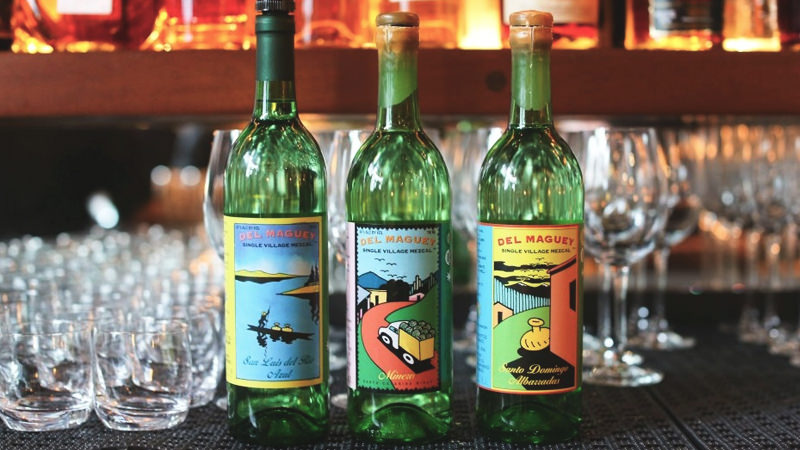
Take Del Maguey, the brand Pernod Ricard recently purchased a majority stake in. Each bottle and label is made by artisan producers who’ve worked in the industry for decades. Ron Cooper, the founder of Del Maguey, is an American, but over time, he built relationships with local producers and farmers. He handles the paperwork, regulations, and government agencies that need proof the liquor is safe for American consumers.
Cooper’s method of doing business is similar to how other mezcal brands operate. Today’s mezcal brand owners are business translators for the master distillers and agave farmers who make the product. Relationships are key to the producers and the brand owners because without a good relationship, the producers get stiffed and the brand owner earns a reputation as a bad business partner. During conversations VinePair conducted with multiple mezcal brand owners, Cooper’s reputation was frequently brought up. People spoke of him as a responsible owner who cared about tradition and quality. His reputation as a spokesperson for mezcal in general in the U.S. is just as commendable.
“If you go out there and talk to any relevant cocktail bar, throughout seven different states — everywhere I go the one brand I see is Del Maguey,” Anthony Champion, the co-founder of the mezcal brand Mezcal Union, tells VinePair over the phone. “When I speak to these bartenders, almost all of them have met Ron Cooper.”
That Pernod Ricard chose Cooper for their investment is telling. It shows both how the corporation wants to position itself in the mezcal industry, and the respect it has for traditional production.
“We want to be associated with the most authentic brands with the strongest provenance in the categories that we operate in,” Agdern of Pernod Ricard tells VinePair, adding that Cooper’s reputation is part of the reason the company choose Del Maguey. “Ron Cooper is the pioneer of the mezcal business in the U.S.,” Agdern says.
There’s that, plus the fact that the purchase follows the direction in which the overall spirits market is going. People today want to know the story behind what they’re drinking, and they want the story to be authentic. “Interest in spirits today versus 20 years ago among bartenders, retailers, and consumers is just 100 times what it was,” Agdern says. People want a product that means something, and “brand stories are so much more important,” he says. These stories are the key to sales, which means stories are key to a corporation’s bottom line.
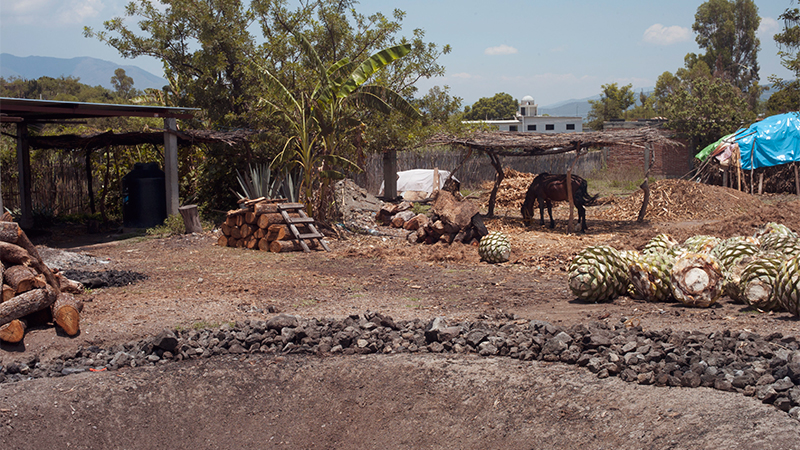
The only real question that remains is whether Pernod Ricard will fundamentally change the way that Del Maguey’s producers do business. Although Pernod Ricard owns a majority of Del Maguey, the original management team — Cooper, Michael Gardner, and Steve Olson — will stay the same. In Agdern’s words, “nothing happens unless Michael, Ron, and Steve believe it should be so.” The way the brand was marketed and built will continue — although Pernod Ricard “may be able to amplify it a little bit” through capital investments.
All this bodes well for the brand and for mezcal, as well as for the culture of Mexican spirits as a whole. “If you go back in history, if you want to represent Mexico, then there’s no better way than mezcal,” Mezcal Union’s Champion says.
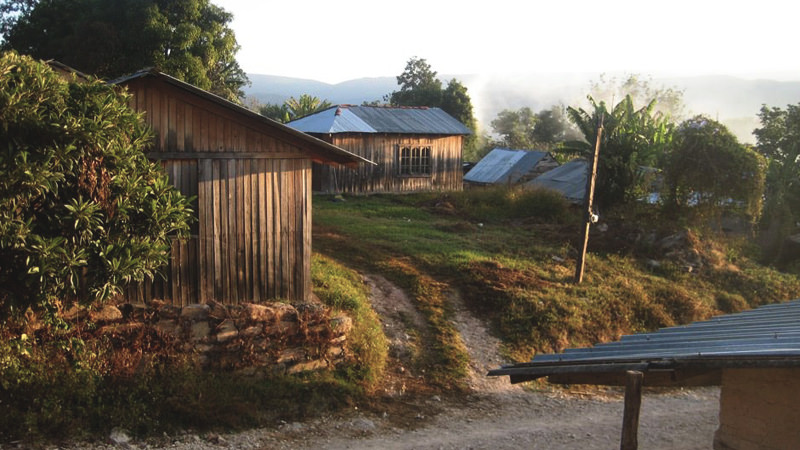
But, Champion adds, “there are a lot of brands that are just getting out there and all they’re doing is buying product, labeling it, and selling it.” Those brands, which Champion didn’t name, are jumping on the trend to make money without staying true to the cultural importance of the spirit (Pernod Ricard said it is not looking to invest in other mezcal companies).
As more mezcal brands have made their way to the United States, the companies pushing the product have to make a decision: stay true to the mezcal-making families who are rich in culture but poor in capital, or capitalize on the reputation of mezcal.
*
Mezcales de Leyenda’s Danny Mena is optimistic about Del Maguey and mezcal in general — despite being continuously questioned about the boom of mezcal for more than eight years.
“I think it’s inevitable that it will lose some of its uniqueness,” Mena says over the phone. “There will be a volume mezcal that will be much more inferior than most of the mezcal we have on the market now, and those will be the big driving forces” in the market while independent companies produce a higher-end product. In the end, Mena says, “it’s not a doomsday scenario,” but the major multinationals “will own one or two just like every other spirit.”
Miller is slightly less optimistic.
“How are they going to ramp up production and still be able to call it artisanal?” Miller asks of Del Maguey. “Or are they going to go the way of tequila?”
Mezcal’s entrance into the mainstream market will be life changing for some producers and villages. It’ll also, inevitably, change much of the culture of the spirit for many of the families who have spent generations living modestly off the land. For the Americans just getting into mezcal, it’ll most likely change before they really got to know it.
